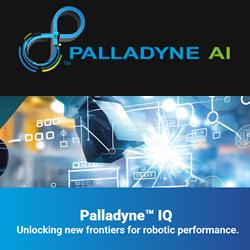U.S. Department of Transportation Grants Nuro First Ever Autonomous Vehicle Exemption
Nuro reveals second-generation autonomous delivery vehicle, “R2”
Nuro, the leading robotics company that launched the world's first unmanned delivery service, debuts R2: its second-generation, custom-built vehicle, which today was granted the first ever exemption for an autonomous vehicle by the U.S. Department of Transportation's National Highway Traffic Safety Administration (NHTSA).
This DOT exemption supports Nuro's deployment of R2 on public roads without certain equipment required for passenger vehicles, such as side mirrors or a windshield. R2 is a Low-Speed Vehicle designed solely to carry goods and not human occupants. R2 is the first autonomous vehicle to be granted an exemption by the DOT, a milestone decision for industry regulation and a future of improved safety, mobility, and commerce.
With R2, Nuro has improved upon existing safety features already present in the R1 vehicle, and is introducing a number of brand-new features, including:
• Standardized Production: R2 was designed and assembled in the U.S. in partnership with Roush Enterprises, a Michigan-based full-service product development supplier. R2 has a more durable custom vehicle body, equipped to handle a greater variety of roads, climates, and weather conditions.
• Narrow Vehicle Profile: With the NHTSA exemption, R2 does not require side mirrors typically relied upon by a human driver. This vehicle has smooth rounded contours where side mirrors otherwise would be placed, making it narrower and creating additional room for bicyclists and other vulnerable road users.
• 360° Vision: NHTSA's exemption permits R2 to continue operating its rearview cameras while moving forward, since the vehicle will never be occupied by a human driver who could otherwise become distracted by the rear video display. R2's ability to see a complete 360-degree view of the roads at all times is therefore preserved using lidar, radar, and cameras without any blind spots.
• Pedestrian-Protecting Front End: With the NHTSA exemption, R2 does not require a traditional, rigid windshield structure designed for driver visibility and protection of passengers. R2 features a pedestrian-protecting front end that absorbs energy and can collapse inward to better protect those outside of the vehicle.
• Larger, Climate-Controlled Compartments: R2 features 65% larger capacity and compartments with temperature control to keep perishable goods fresh, including groceries or meals. Climate-controlled compartments expand the type and quantity of goods R2 can deliver, ensuring customer satisfaction and solving for a pain point in existing delivery models, without increasing vehicle width.
• Improved Customer Experience: R2 will be easier to interact with than ever before. The vehicle has redesigned doors to provide more headroom and clearer access to the compartments. It also has a larger exterior screen for unlocking compartments and interacting with the vehicle.
NHTSA's decision to grant Nuro an exemption comes after three years of discussion and collaboration with the agency. After extensive preliminary discussions, Nuro submitted the exemption request in October 2018. NHTSA requested public comments in March 2019. During that comment period, many stakeholders wrote in support of the exemption including the Mayor and Chief of Police of Scottsdale (where Nuro operated a delivery service from Dec. 2018 - Mar. 2019 and continues testing operations), Kroger (a delivery partner), as well as other automakers, self-driving technology companies, clean-energy advocates, and fellow citizens.
R2 will soon join Nuro's fleet of self-driving Prius vehicles in Houston, TX, making deliveries to consumers on public roads. The deployment of R2 comes just over one year after Nuro launched the world's first unmanned delivery service with its first-generation vehicle, R1, in Scottsdale, AZ--representing a larger scale effort by Nuro to transform local commerce and offer an affordable, accessible delivery service to communities across the country. By replacing heavy passenger vehicles utilized for shopping and other errands, Nuro is ushering in a new era of neighborhood-friendly and socially responsible zero-occupant vehicles.
To enable the safe and responsible growth of the autonomous delivery industry, Nuro is supporting the DOT's efforts to modernize their underlying regulations, which were written before Nuro developed the first vehicles without any occupants. The DOT has already begun the process, and recently announced that it intends to begin rulemaking on passengerless vehicles this year.
"We founded Nuro on the belief that we could reimagine, design, and develop an autonomous vehicle that would make the world a safer place. Our second-generation vehicle will advance our goal of transforming local commerce, and we are gratified that the Department of Transportation, under Secretary Chao's leadership, is promoting public safety and providing regulatory certainty for the self-driving industry. Today's decision shows that ‘exemption' can mean more safety," said co-founder and President Dave Ferguson. "Our world-class team solved countless novel problems to create this design, and, after extensive modeling, research, and testing, created a vehicle unlike any other on the road today."
About Nuro
Nuro is a robotics company transforming local commerce through driverless delivery. The company develops and operates a fleet of self-driving vehicles that deliver local goods of all kinds, from dinner to dry cleaning. Nuro's service helps merchants deliver goods to customers quickly, affordably, and safely. Led by world-renowned experts in robotics, artificial intelligence, computer vision, and product design, the company began making driverless deliveries to the public in 2018. Nuro has raised more than $1 billion in financing from investors including Softbank and Greylock and shares partnerships with leading brands such as Walmart, Domino's and Kroger.
Featured Product

Palladyne™ IQ - Unlocking new frontiers for robotic performance.
Palladyne™ IQ is a closed-loop autonomy software that uses artificial intelligence (AI) and machine learning (ML) technologies to provide human-like reasoning capabilities for industrial robots and collaborative robots (cobots). By enabling robots to perceive variations or changes in the real-world environment and adapt to them dynamically, Palladyne IQ helps make robots smarter today and ready to handle jobs that have historically been too complex to automate.
